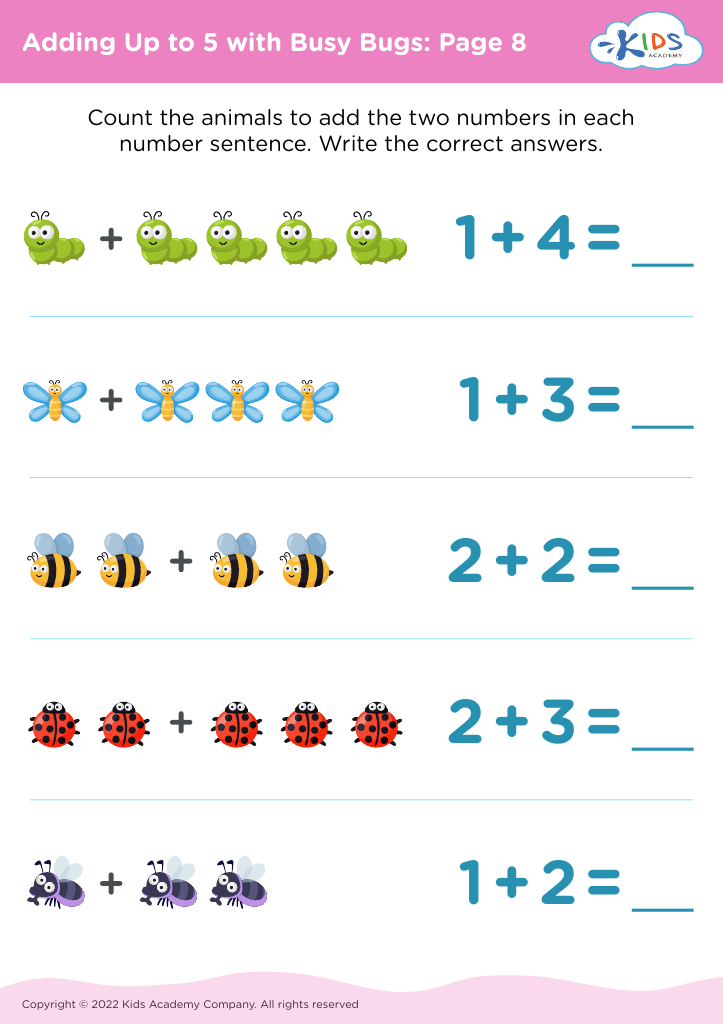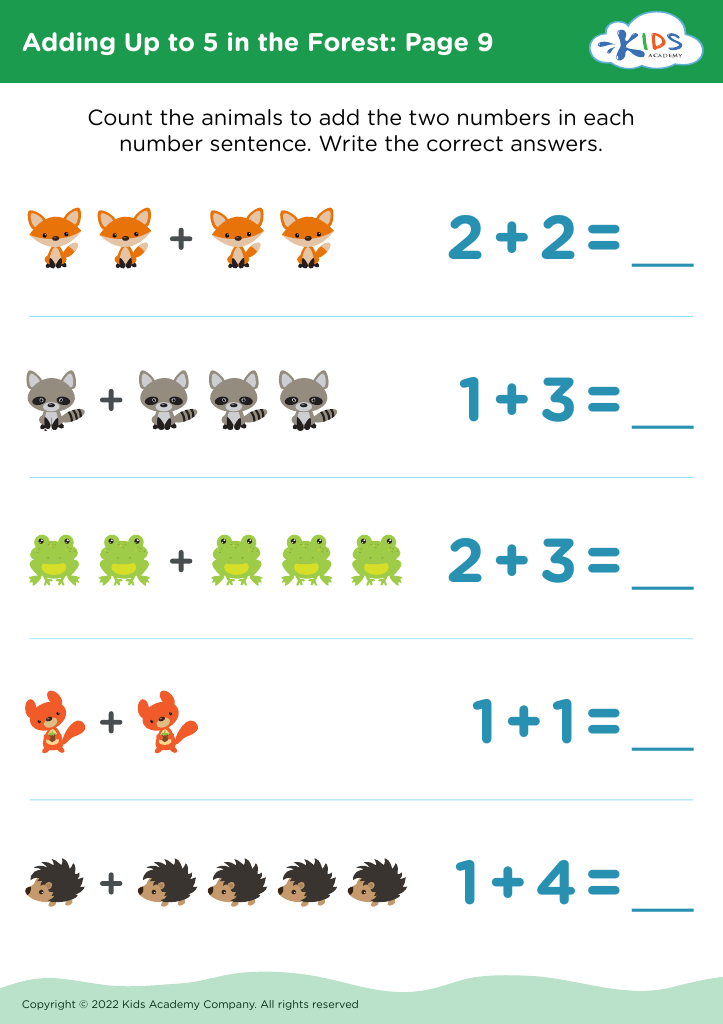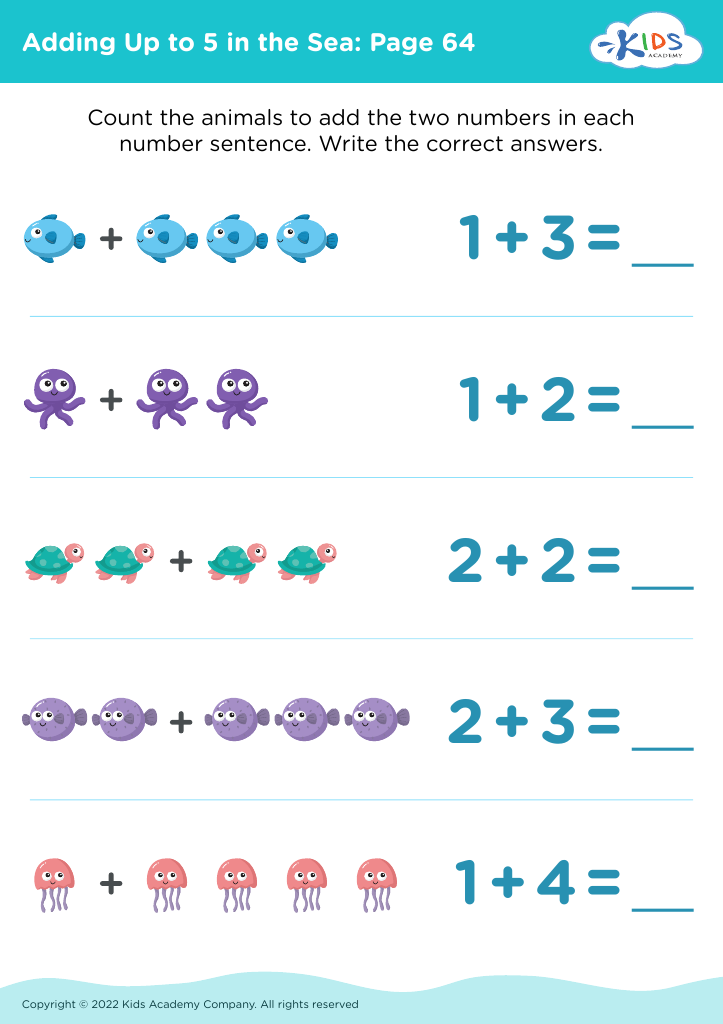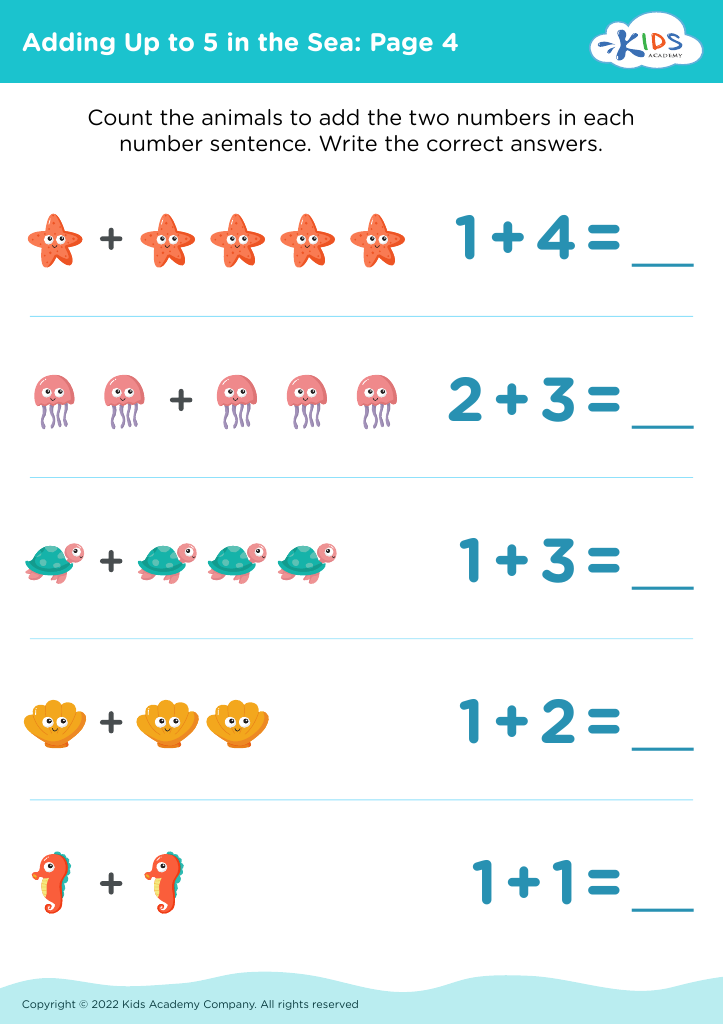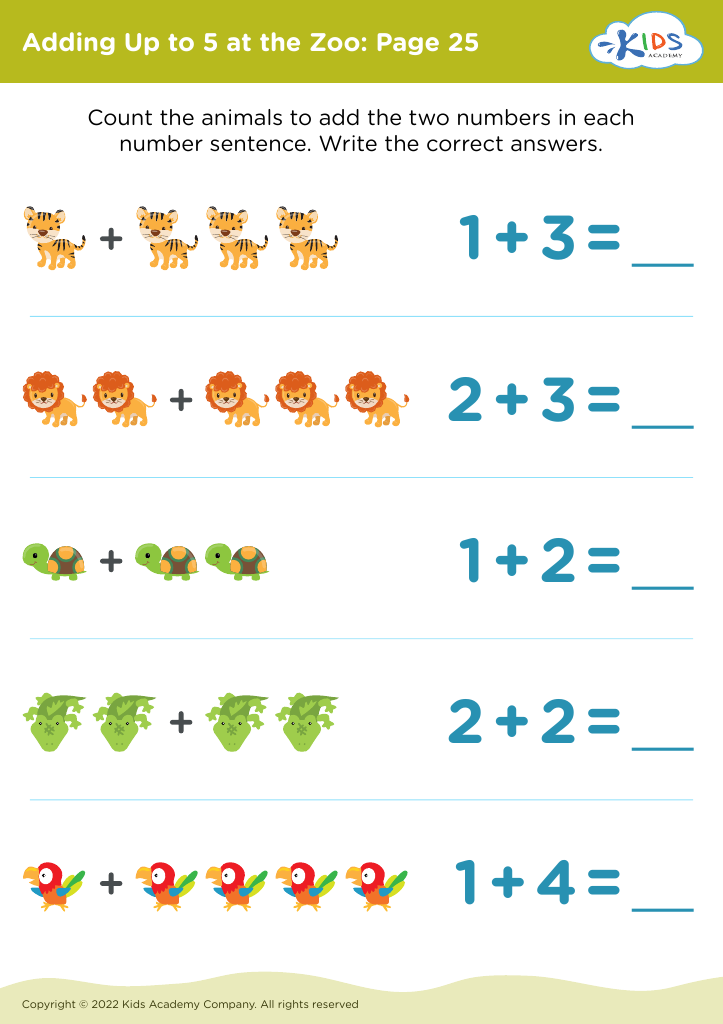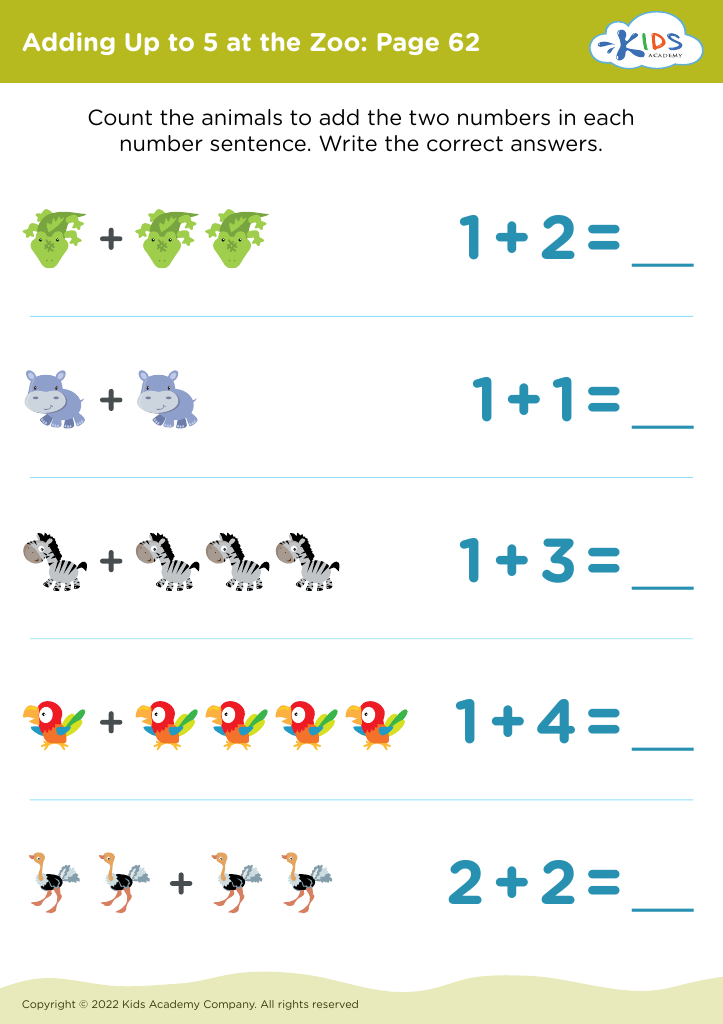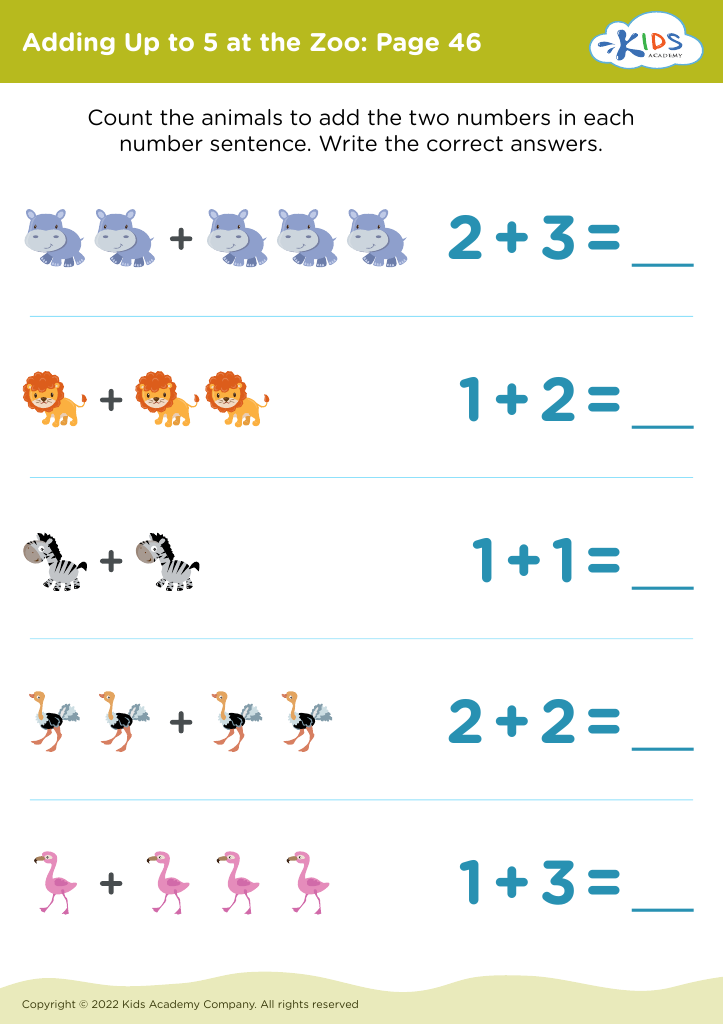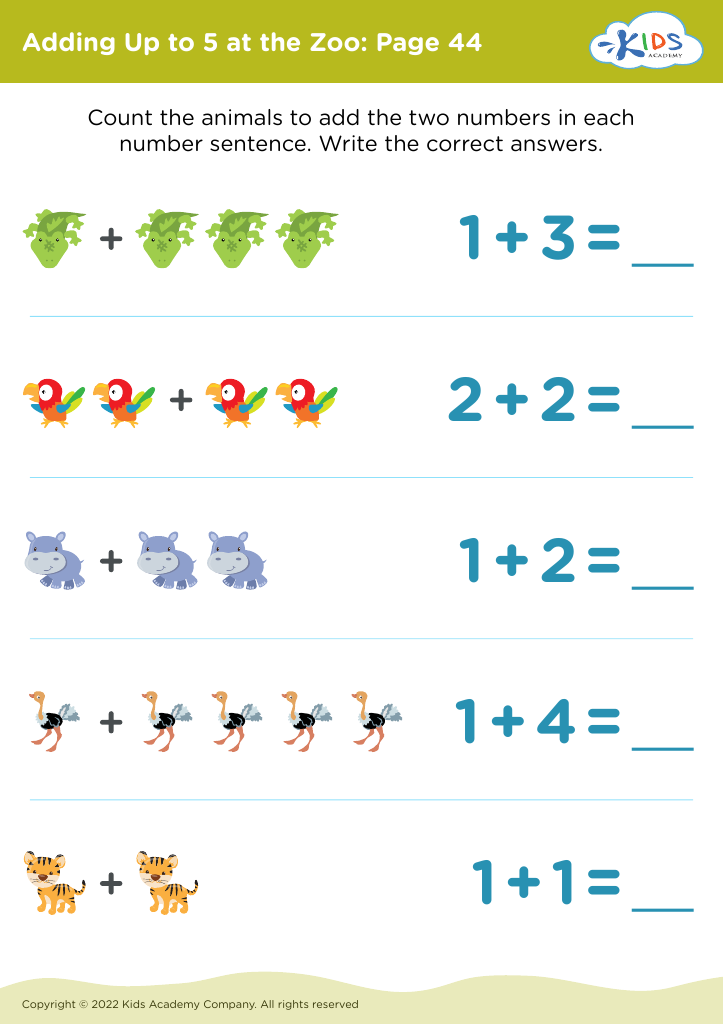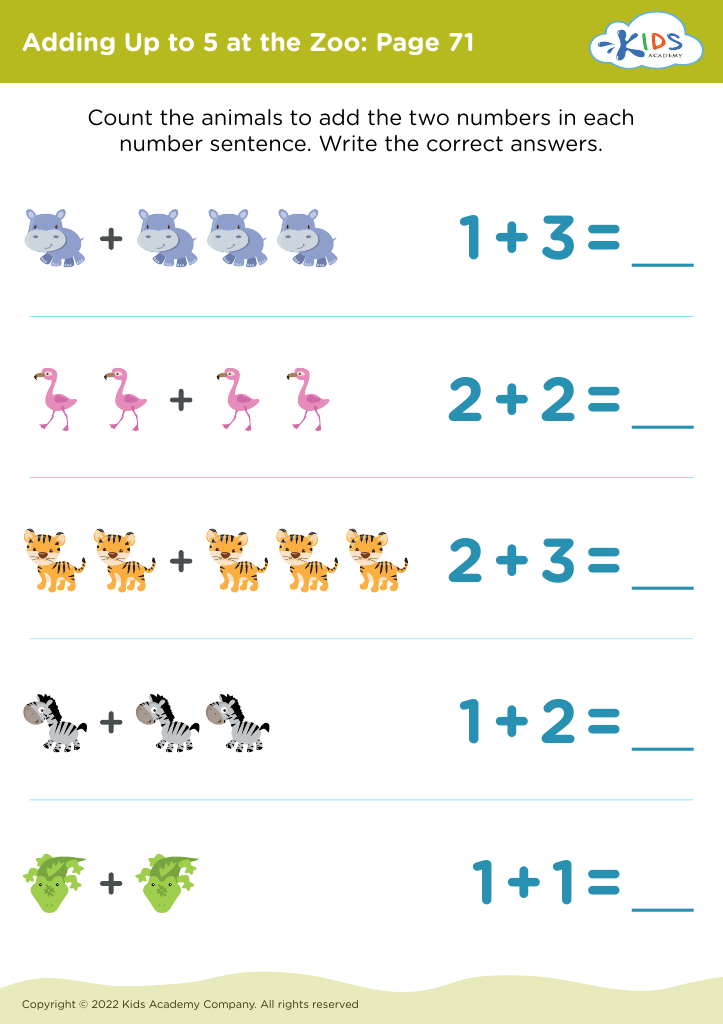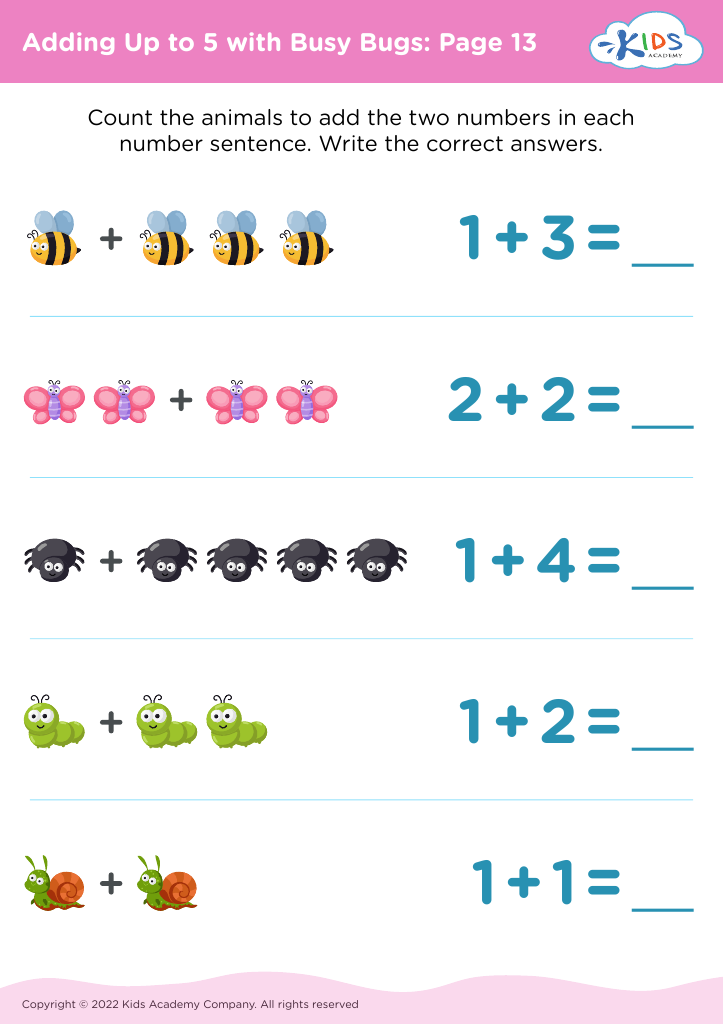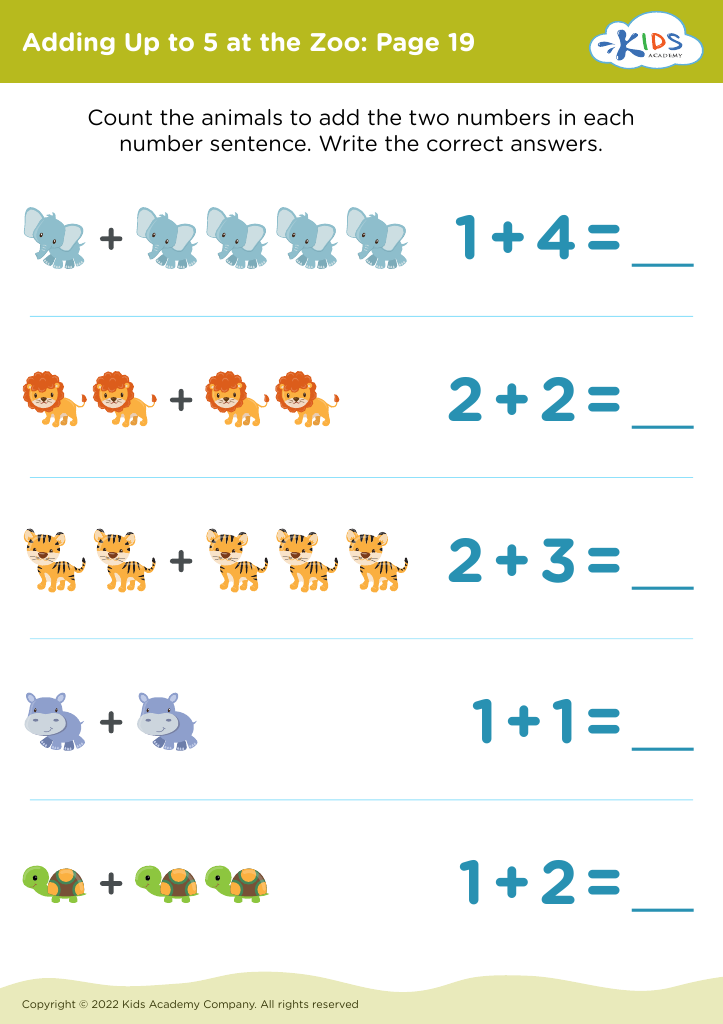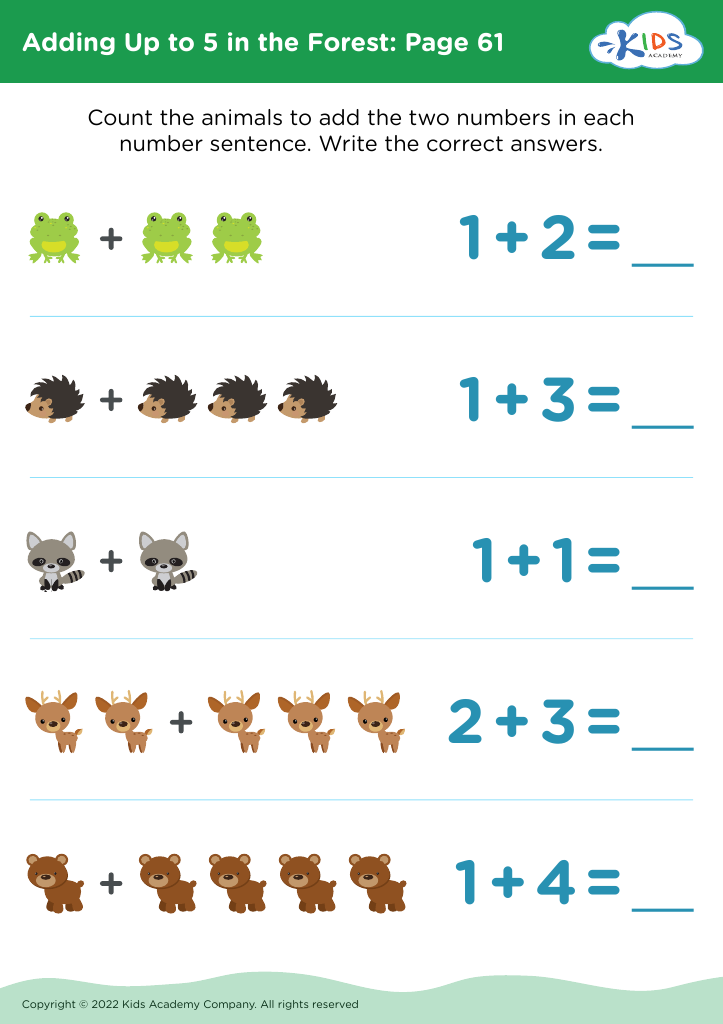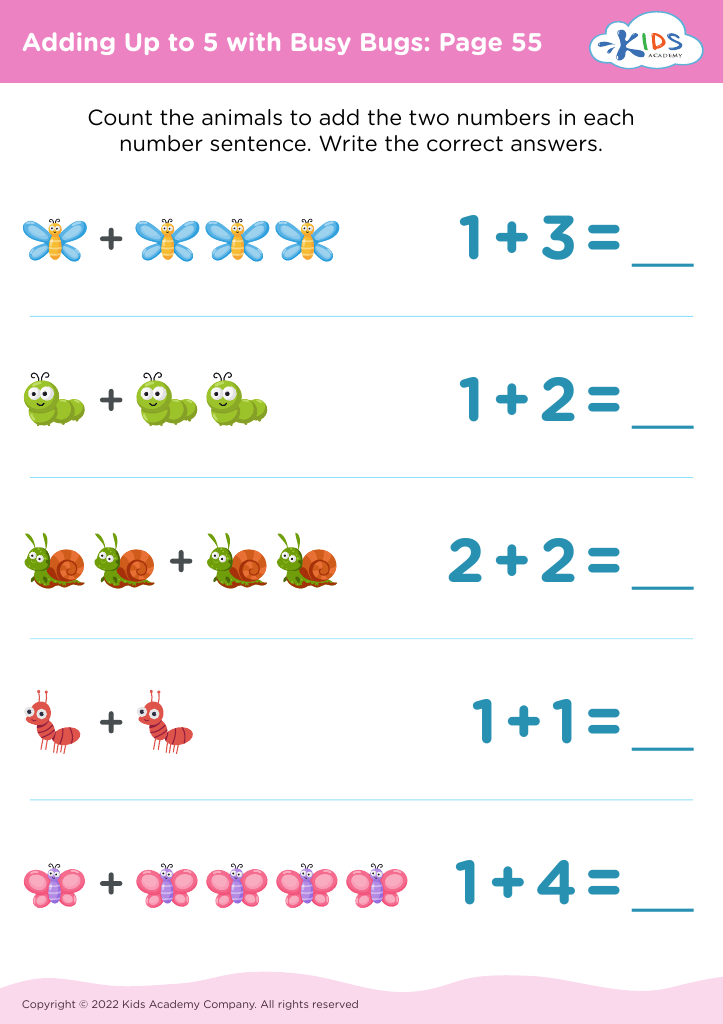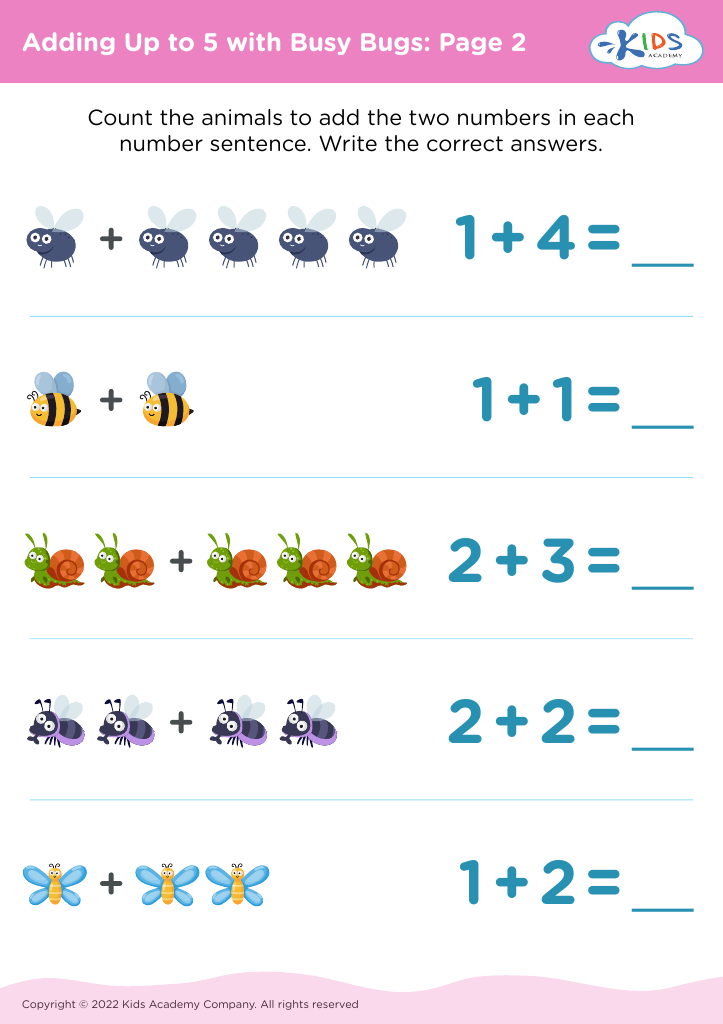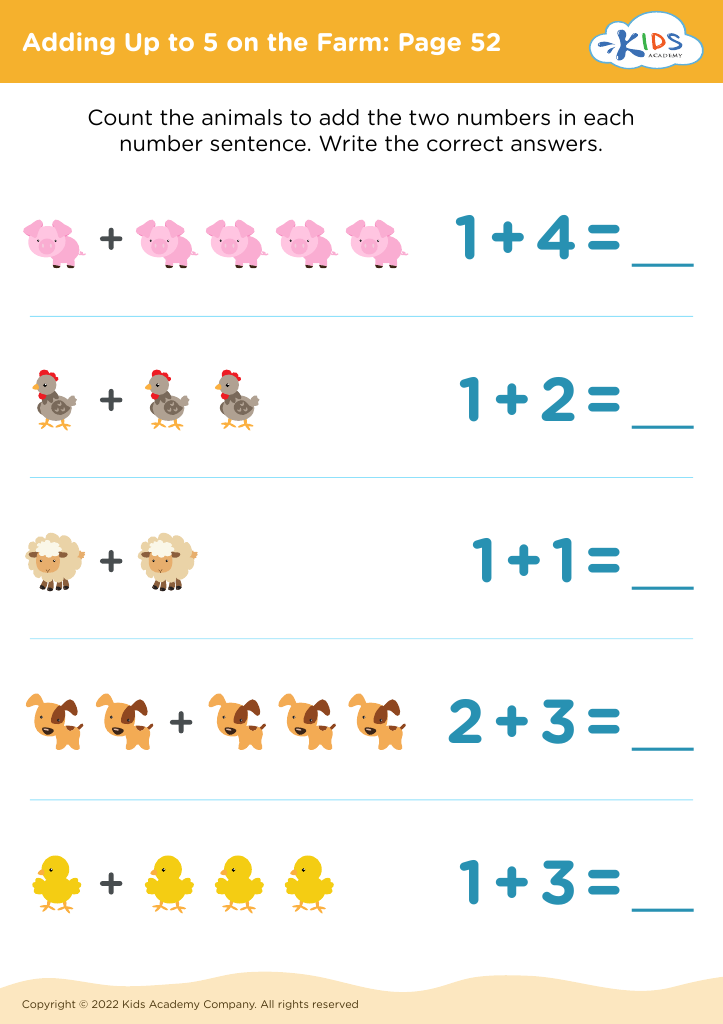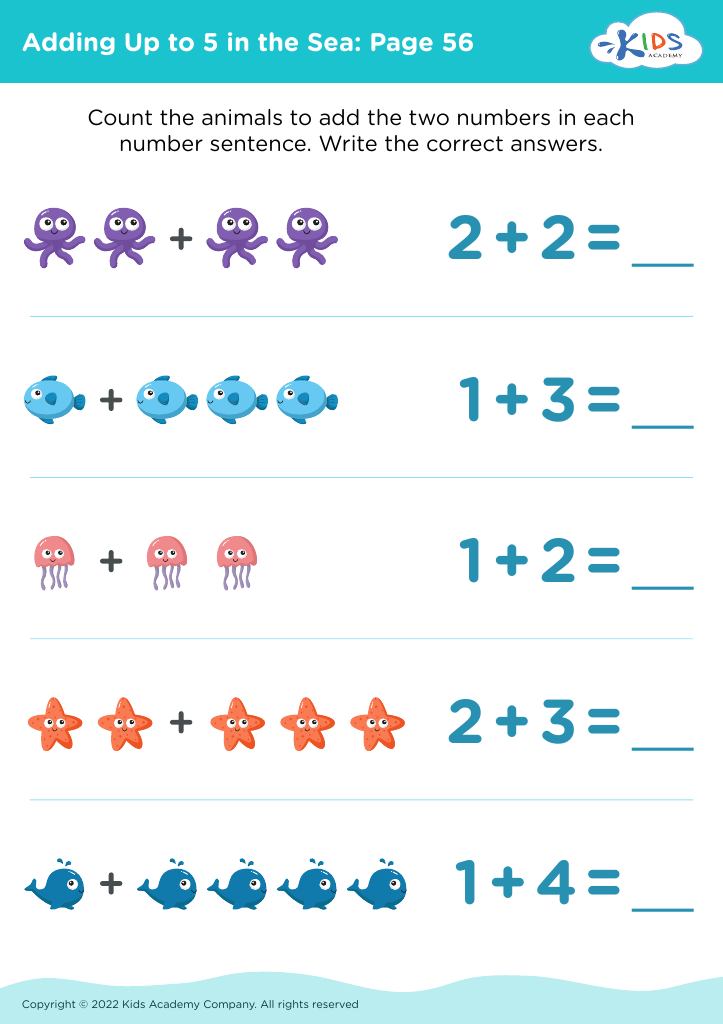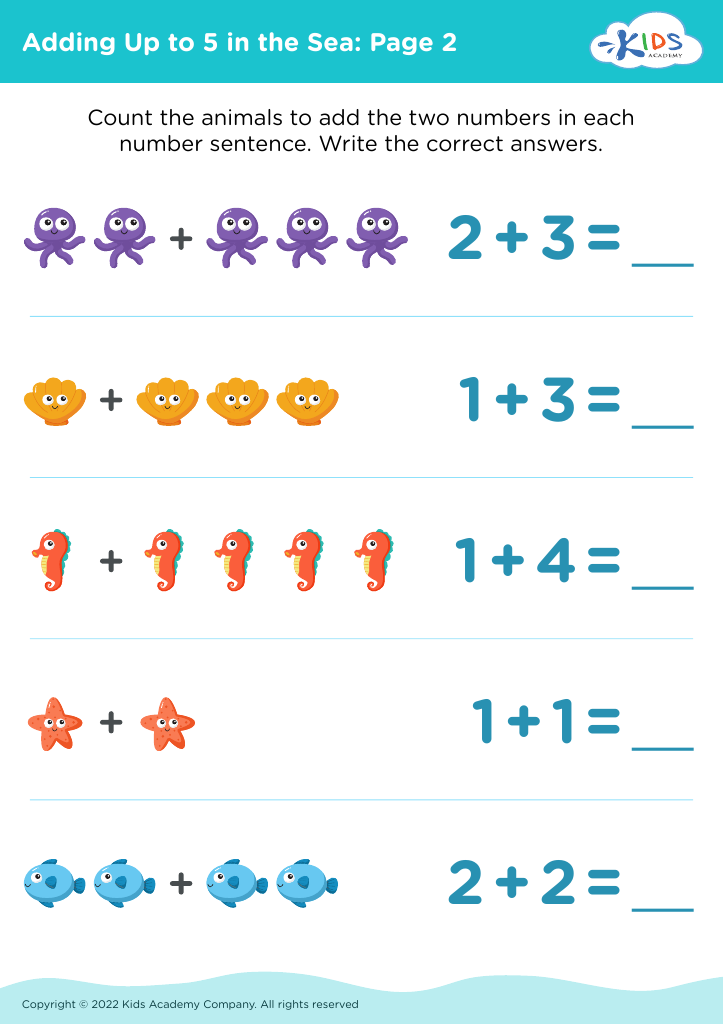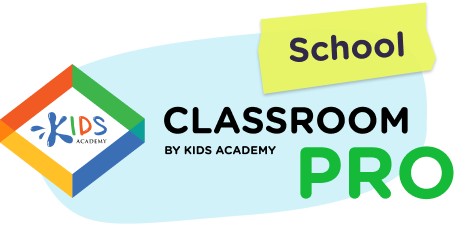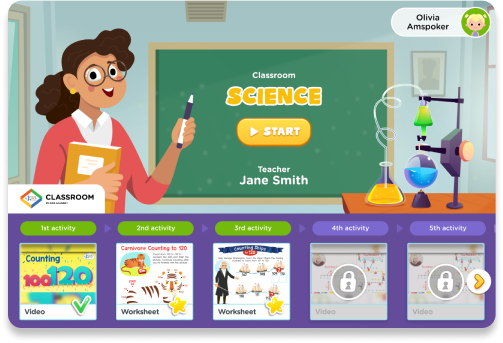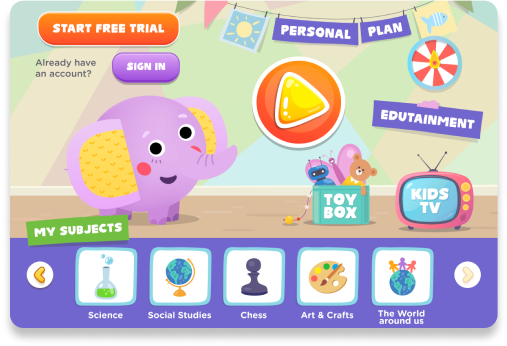Addition skills Addition Worksheets for Ages 5-6 - Page 3
91 filtered results
-
From - To
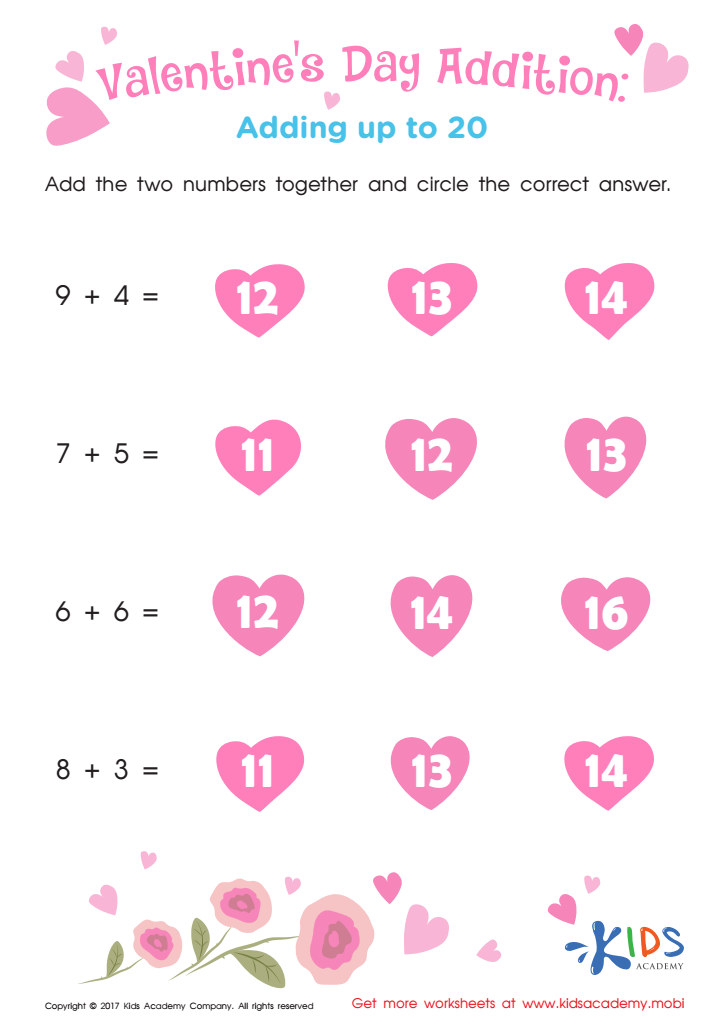

Valentine's Day Addition Worksheet
Parents and teachers should prioritize teaching addition skills to children aged 5-6 because these foundational math abilities play a crucial role in their overall cognitive development and academic success. At this age, children are in a critical period for building basic arithmetic understanding, which serves as the groundwork for more complex mathematical concepts. Learning addition helps them develop problem-solving skills, logical reasoning, and critical thinking.
Moreover, early proficiency in addition enhances a child's confidence and encourages a positive attitude towards mathematics, which can influence their willingness to engage with learning throughout their school years. Mathematics is integral to daily life, from counting money and telling time to understanding patterns and sequences in nature; thus, strong early math skills are practical and relevant.
Socially and emotionally, successfully mastering addition can foster a sense of achievement and boost self-esteem in young learners. It also supports classroom interaction as students begin working on group activities, sharing strategies, and helping peers, contributing to the development of collaboration skills.
In summary, emphasizing addition skills for 5-6-year-olds equips them with essential tools for future academic endeavors, nurtures a lasting love of learning, and provides a strong numerical foundation vital for their overall intellectual and personal growth.
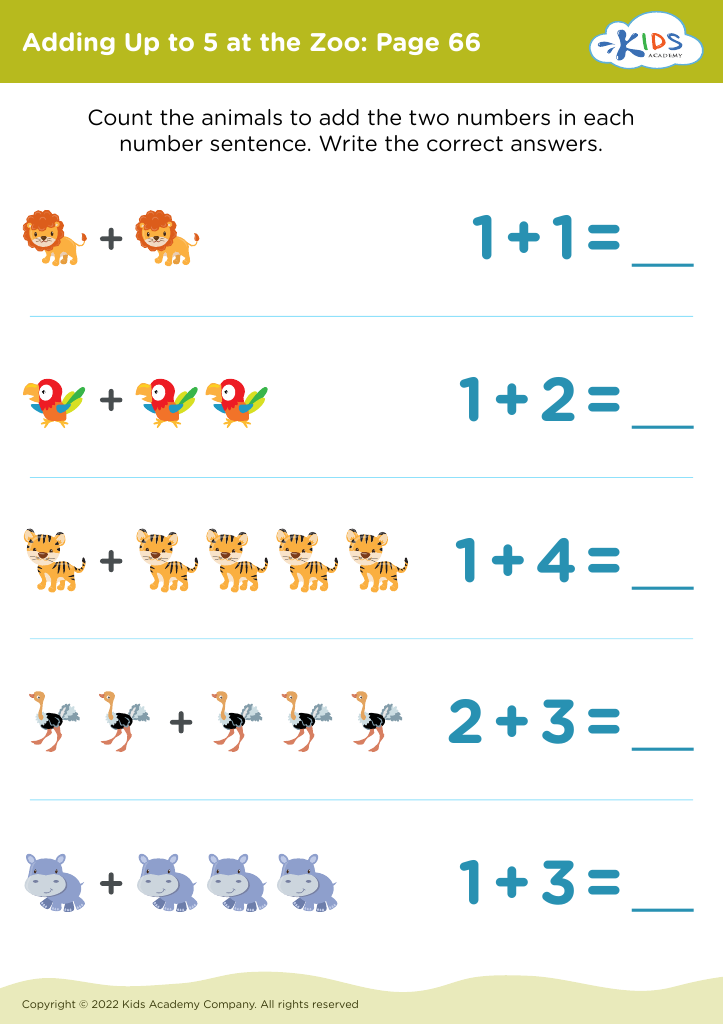
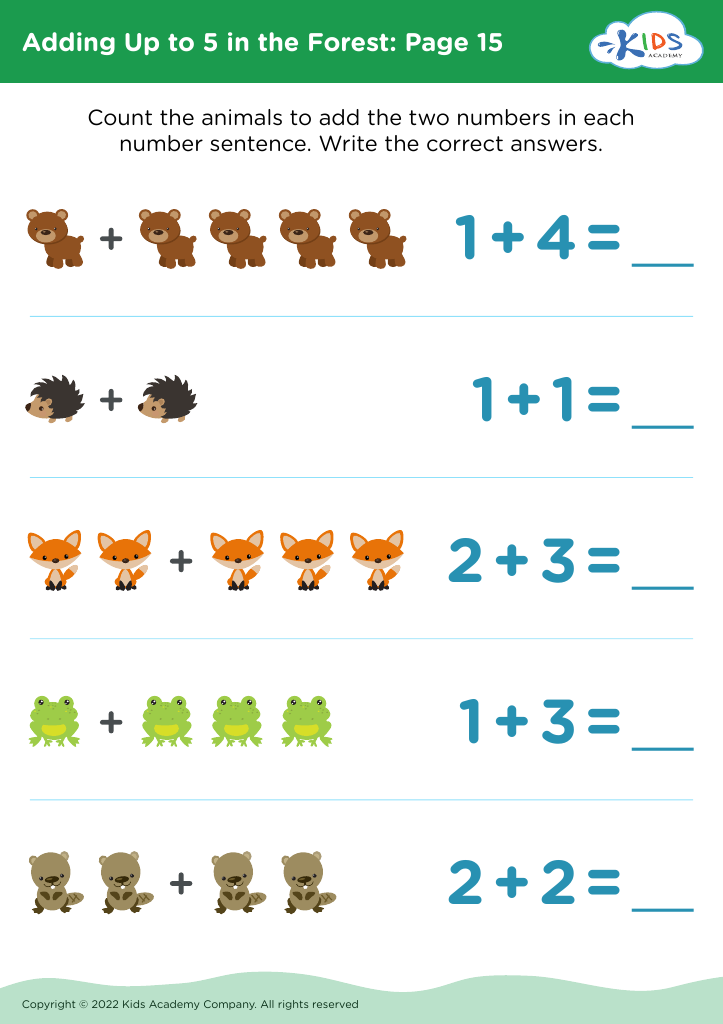
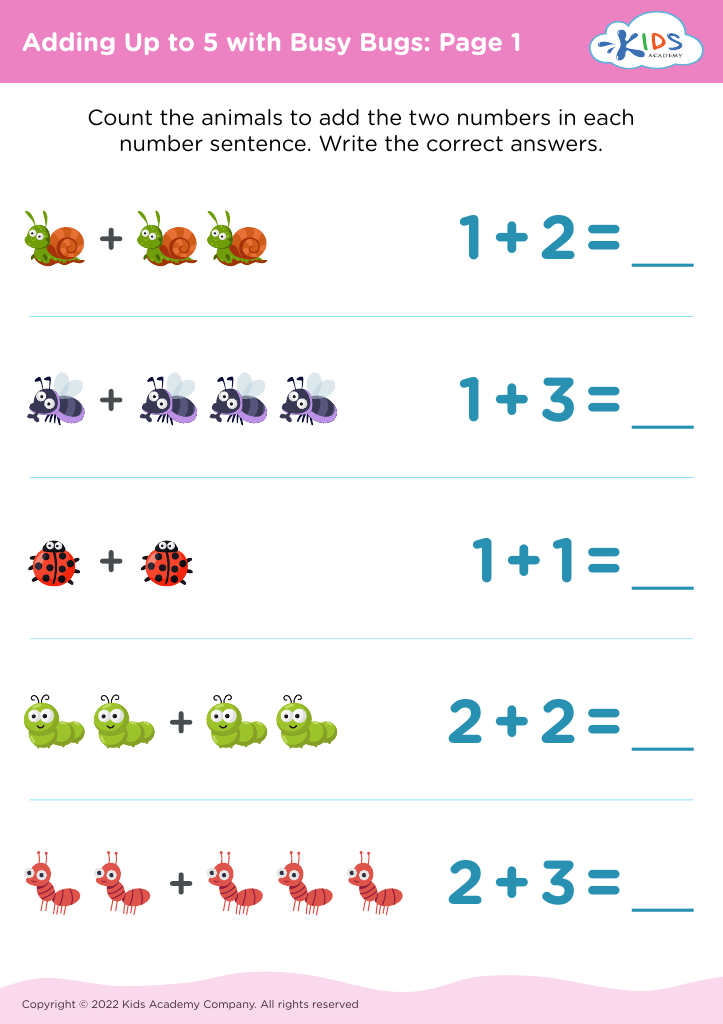
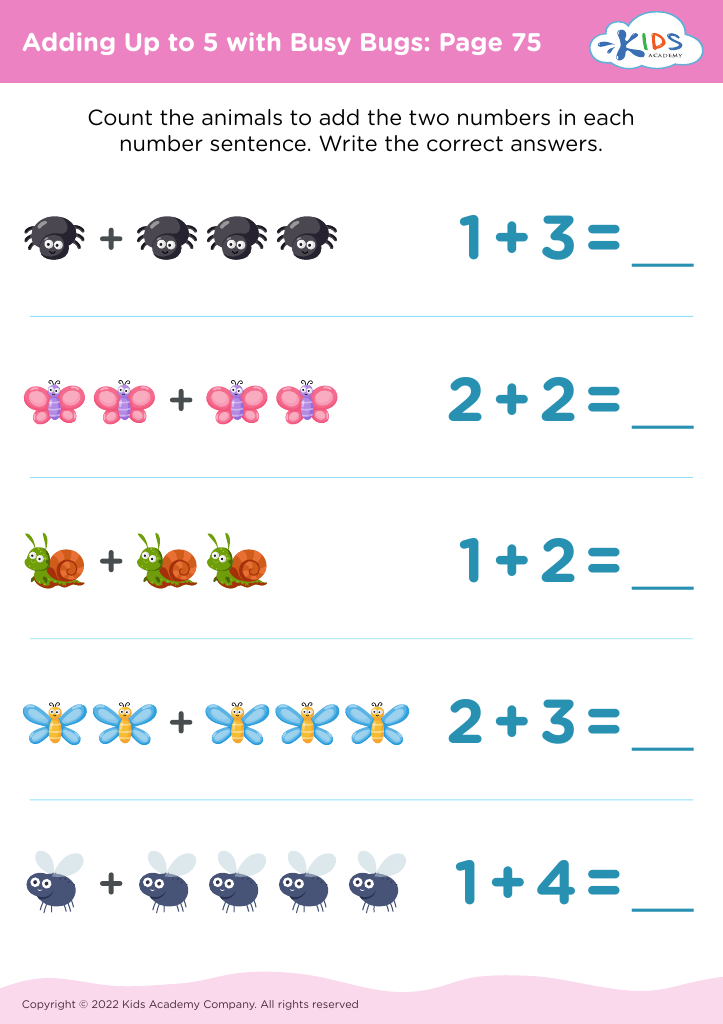
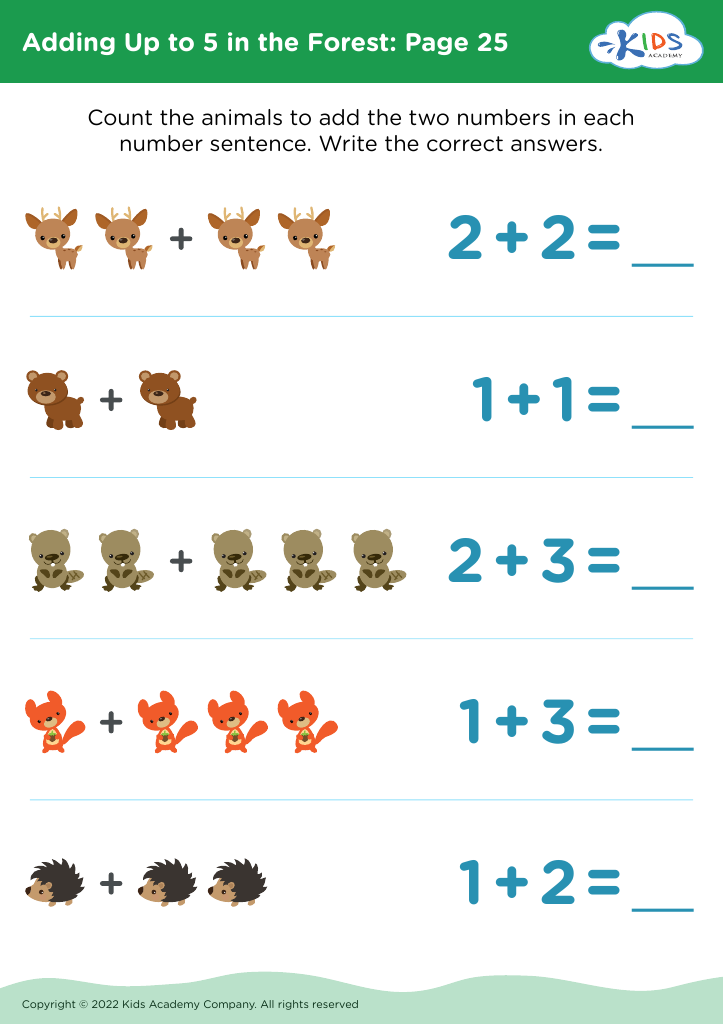
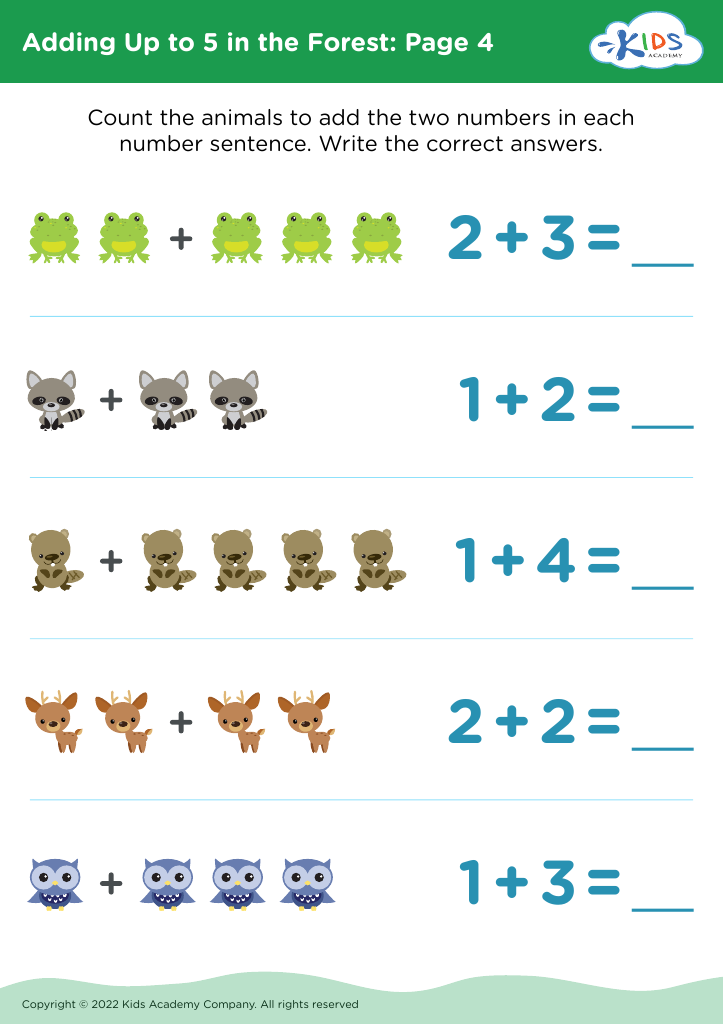
 Assign to My Students
Assign to My Students
